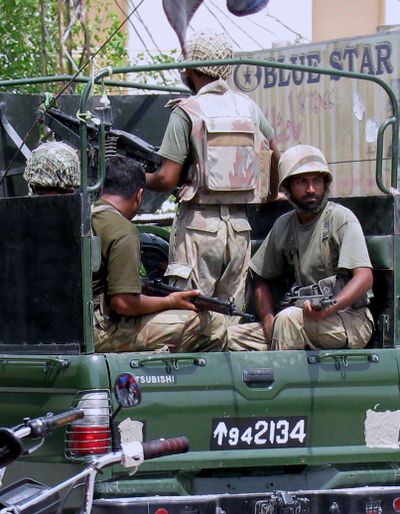Pakistan’s fiercest fight
Tribal region of Waziristan poses harsh test for nation’s military

ISLAMABAD – After relative success against Islamic extremists elsewhere, Pakistan’s military faces its most difficult test yet: a surgical operation against the country’s most dangerous militant in a region of harsh terrain and tribal rivalries.
The target of the air and ground offensive now in its early phases is Baitullah Mehsud, the top commander of Pakistan’s Taliban who has ties to al-Qaida. Mehsud is believed responsible for scores of suicide attacks – possibly including the December 2007 assassination of former Prime Minister Benazir Bhutto.
Pakistan considers Mehsud its greatest domestic threat. The U.S. views him as a danger to its war effort in Afghanistan because his base in South Waziristan harbors militants fleeing across the border.
The Obama administration fears that a destabilized, nuclear-armed Pakistan could endanger the entire region. In recent months, U.S. missile strikes have increasingly focused on Mehsud-linked targets.
Roughly half the size of Connecticut, South Waziristan is a mountainous, underdeveloped territory. It has a leaky border with Afghanistan, barely any government infrastructure and fiercely independent, heavily armed Pashtun tribes hostile to interference by outsiders, including Pakistan’s Punjabi-dominated army.
Mehsud “is the main center of gravity. He is a leader who has declared himself the emir, the ruler of the other factions, also. He has been the main source of terrorism in Pakistan,” said Maj. Gen. Athar Abbas, the army’s chief spokesman.
As it ramps up its offensive, the military is trying to choke off sections of South Waziristan under Mehsud’s control. Major roads are being cleared and potential escape routes sealed off to isolate the militants before the army’s campaign takes off, Abbas said.
By limiting the scope of the operation, the Pakistanis hope to avoid alienating other tribes, whose support – or at least neutrality – would be crucial to eliminating Mehsud.
Key to that effort is to cut deals with other militant leaders.
“They cannot afford to alienate every single militant,” said Kamran Bokhari of Stratfor, a private security think-tank in Austin, Texas. “The tribes, the militia leaders, they are adjusting day by day. It’s an issue of sorting out the baddies from the ones who aren’t fighting the Pakistani state.”